In a series of three rulings over three years, a BC Supreme Court justice and two provincial court judges have decided a polyamorous man in Nanaimo is fit to be a father, even if he has more than one romantic partner.
This is the first Canadian family law case to centre around the legitimacy of polyamorous parents.
The lawyer for the children’s mother tried to use Canada’s law against polygamy to argue that polyamorous relationships are intrinsically harmful to women and children, and accused the father of inflicting emotional pain on his children.
All three judges disagreed.
On Feb 23, 2016, the father received a final ruling establishing that he can continue to share equal parenting time with the mother of his children.
The judge also found the father’s relationship style is irrelevant to his abilities as a parent, and that his other relationships are actually valuable to caring for his children.
One legal expert says the case could be an important guide for future legal treatment of polyamorous families in Canada; another says it reveals problematic flaws in how courts treat family cases.
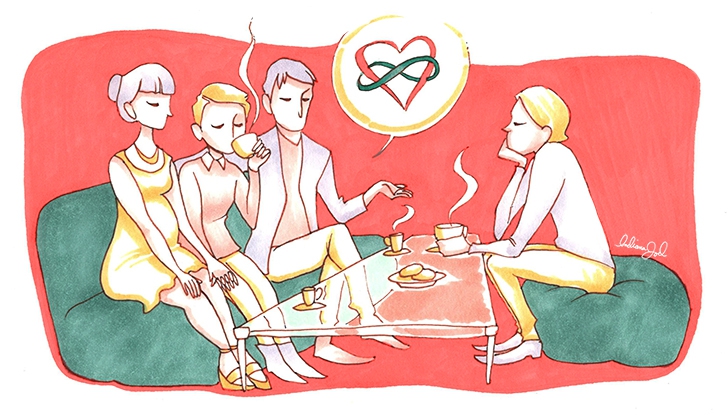
Paul (whose name, along with those of his family, has been changed to protect his children) didn’t think he could tell his high school girlfriend Clara she had to stop dating women. That was how it started. Who was he, he reasoned, to tell her to ignore half of her sexuality? In 1991, she started dating Theresa, and the three moved in together.
None of them had ever heard of anything called “polyamory.” They lived quietly, hiding their relationship from their friends, family and coworkers. When Paul did tell a few friends, they jokingly asked him how he had “tricked” his girlfriends into it.
In 2001, Clara had her first child, and in 2003 Theresa became pregnant with hers. With Theresa’s baby on the way, Paul says he was forced to come out to his family in Edmonton. He sat down with his grandmother — a conservative Alberta redneck, he says — and told her the whole story. There was a long silence. “Well, as long as you keep ’em fucked and fed, you can keep ’em,” she replied, finally.
It was after Paul’s grandmother died that he met 21-year-old Sarah where they worked together in a warehouse. The beginning of their relationship was rocky — his life was falling apart that spring, Paul says. He didn’t tell Sarah about Clara, or Clara about Sarah. When Clara and Theresa found out, they moved out. By the fall, however, court documents show the rift had closed.
Clara, Sarah and Paul started a new relationship, with Theresa co-parenting from a distance. In 2010, the four decided to move back to Nanaimo as a family.
This time, though, on Sarah’s insistence, they were open about how they lived, Paul says. They met each other’s parents, and talked honestly to their friends about their relationship. Sarah, Clara and Paul settled down in a house owned by his sister-in-law, and Theresa lived nearby with a boyfriend. They met other polyamorous people, and first began to identify with the word. Sarah, Paul says, was a poly flagbearer.
“She was the one who really forced this issue of being open,” he says, “which was really great.”
Sarah wouId later tell a court that she was coerced into the relationship. In 2011, she gave birth to Paul’s first daughter, Angela.
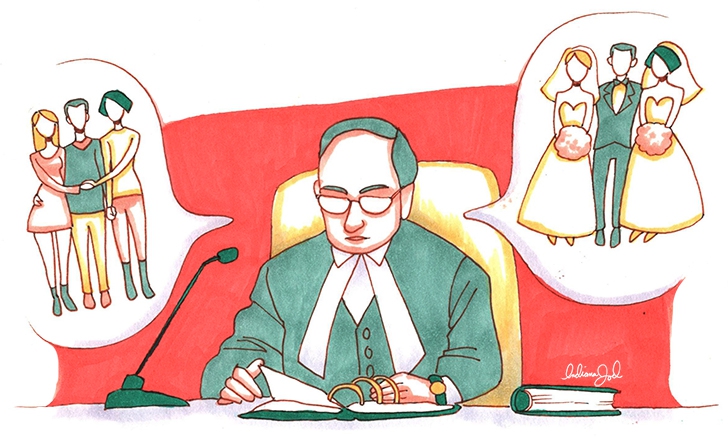
While Paul, Sarah, Theresa, Clara and their three children lived together in Nanaimo, a complex legal battle was brewing in the BC Court of Appeal.
In 2009, the BC government had failed in the prosecution of two men from the Mormon polygamous community of Bountiful, BC. To clarify where the century-old law on polygamy stood, BC’s attorney general launched a reference case, a trial in which the government preemptively asked the court to decide if the section of Canada’s Criminal Code prohibiting polygamy is constitutional.
Intervening in the case, the Canadian Polyamory Advocacy Association (CPAA) worried that an overly broad reading of the polygamy law would criminalize cohabiting polyamorous families.
Council for the BC and Canadian Attorneys General argued that polyamorists wouldn’t be caught by the law and, even if they were, there was no reason to think polyamorous relationships were any less harmful than polygamous ones.
BC Supreme Court Justice Robert Bauman’s decision in November 2011 satisfied both the Crown and the CPAA.
He ruled that Section 293 does infringe on religious freedom, but because of the harms to women and children inherent in polygamy, as well as harms to the institution of monogamous marriage, the infringement is justified.
More importantly to polyamorists, he also said to be guilty of polygamy one had to perform some sort of ceremony of marriage, legal or otherwise. Since most polyamorists have no intention of entering into a formal marriage, they were safe.
What Bauman did not answer was the question implicitly raised by the government lawyers: Are polyamorous relationships any less harmful than polygamous ones?
Polyamorists do not harm the institution of monogamous marriage, Bauman reasoned, so they are not included by Section 293. What polyamory meant for families or children was simply not his business to decide.
While reporting on a polyamorous conference in 2013, I asked Canadian family law scholar John-Paul Boyd how polyamory would play out in family court in light of Bauman’s decision. He assured me that family trial judges would take a practical approach, dealing with parents on their merits rather than the style of their relationships.
The same day, a man at the conference told us just such a case was underway in Nanaimo, BC. Paul and Sarah were going to court; we were going to see if Boyd was right.
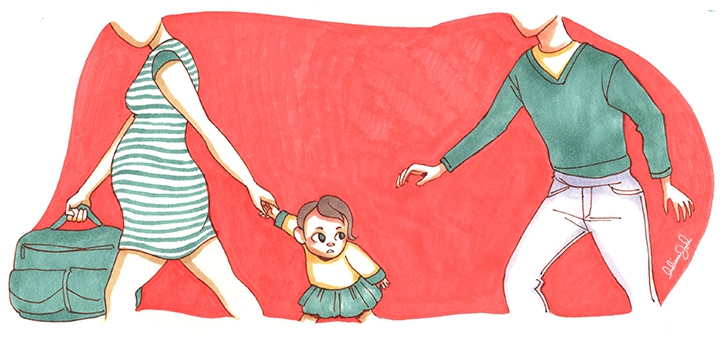
The details of Paul and Sarah’s case are laid out in three judgments, from June 2013 to February 2016. The stories are incomplete, but are the only impartial record of the case. Sarah’s lawyer did not respond to repeated messages asking if he or his client wished to comment.
While Paul’s narrative above is taken from his own memories, the following events are only those described by the three judges who heard his case, or included in legal documents.
In the early summer of 2012, Sarah was pregnant with her second child and wanted to fly home to Edmonton to see her family. Paul said he was worried flying might affect her pregnancy, especially after Clara had suffered a number of miscarriages. He offered to drive her instead, but she decided not to go. In the aftermath of the argument, Sarah broke up with Paul and Clara, but continued to live with them.
What started as an amicable breakup escalated quickly, court documents show.
Sarah told Paul she wanted to move back to Edmonton with Angela. Worried she would leave suddenly, Paul hired a lawyer, and got a court order to keep his daughter in Nanaimo. Sarah responded by moving out, and taking Angela with her.
She also went to the RCMP, court documents show, and reported that Paul had been violent and controlling. When Paul went to court to set up access to Angela, Sarah’s lawyer countered with the accusation that Paul was a polygamist.
In the resulting four-day court case, in front of Provincial Court Judge Justine Saunders, Paul asked for equal parenting time with Angela, and that Sarah be prevented from taking her to Edmonton. Sarah asked for full parenting responsibilities over Angela, and that Paul only be able to visit her monthly.
Saunders’ judgment was a resounding victory for Paul.
The judge described the case without so much as a blink at Paul’s relationships. In a brisk and forceful decision, she said Sarah was manipulative and had argued in bad faith, and that taking the children to Edmonton was against their best interest. Paul, Saunders said, was a good and dedicated father, and Sarah was as much at fault for the fights.
“The incidents were consensual and were the result of alcohol consumption and poor anger management,” Saunders writes. “[Sarah] has not satisfied the court that the violence was perpetrated on her by [Paul] for no apparent reason.”
Angela, Saunders ruled, would stay in Nanaimo, and Paul would have half of the parenting time and responsibilities.
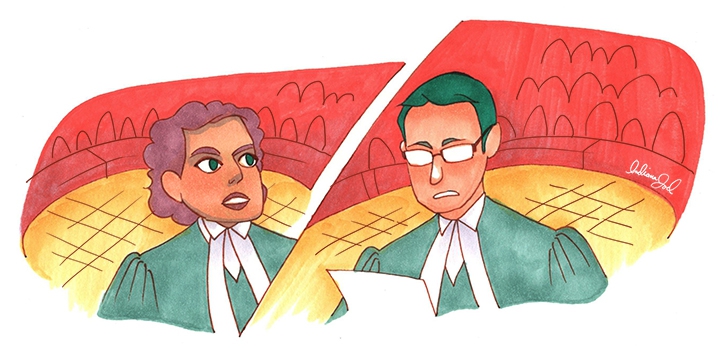
The very force of Saunders’ support for Paul, however, opened up the case to appeal.
The same spring, British Columbia had introduced the new Family Law Act. Among other reforms, the law set a higher bar for consideration of family violence. Saunders’ brusque dismissal of Sarah’s complaints might have flown a few months earlier, but times had suddenly changed.
At appeal in front of the BC Supreme Court, Sarah’s lawyer Joseph Broadhurst, a fifth-year associate at one of Vancouver’s largest family law firms, leaned hard into the polygamy angle, pulling quotes from Bauman’s reference case to suggest the women and children in Paul’s family were at risk of physical and psychological abuse.
Saunders had slipped, Broadhurst argued, by failing to take note of the Bauman decision, or to interpret Sarah’s allegations of violence in light of the intrinsic harms of polygamy.
Paul’s lawyer Joanna Recalma, a Pentlatch Nation family lawyer from Vancouver Island barely out of law school, pushed back.
The polygamy reference had nothing to do with the case, she said, and Broadhurst was pulling quotes out of context that had nothing to do with her client.
Supreme Court Justice Margot Fleming’s ruling was mixed. Polygamy, she agreed, had nothing to do with the case, and Broadhurst’s attempts to pull in Bauman’s rulings were misplaced and mistimed. Paul’s virtue as a parent was best decided on the facts, and not on some supposed intrinsic harm.
On the other hand, Fleming said, she was troubled by Saunders’ casual treatment of the allegations of violence. Under the new Family Law Act, more was required. Rather than rule on the issue herself, Fleming reluctantly sent the case to be tried all over again in provincial court.
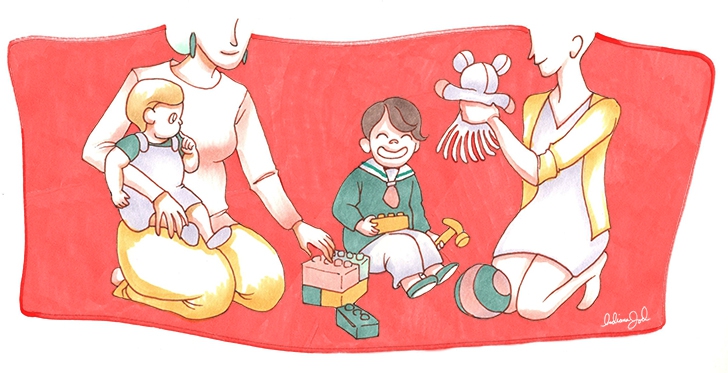
If there were any chance the second provincial trial would simply be a repetition of the first, it was spoiled by Jane Ward, a family justice counsellor appointed by the court to assess Paul and Sarah’s parenting.
In a remarkable report, she tore into Paul’s parenting, calling him dominant, abusive and controlling. Paul’s children, she insisted, would be bullied and ostracized for living in a polygamous family, and would be left with psychic pain and attachment disorders.
Canadian families, she was sure, might be ready to handle gay parents, but multiple parents were out of the question.
Cross-examining Ward in court, Recalma neatly eviscerated the report, and showed that Ward had based her conclusions on hearsay, conjecture and prejudgment. In many cases, she argued, Ward had simply taken everything Sarah said at face value, without asking Paul or checking for herself.
In the end, Judge Ronald Lamperson took seriously the command to be more thorough — more than doubling the length of Saunders’ judgment — but his conclusions were the same.
“There is no evidence that being raised in a polyamorous family has had a negative effect,” he writes. “The evidence is that both boys are well-adjusted and happy and have good friends who sometimes stay over.”
Moreover, he says, the close relationships Sarah’s children have with Theresa and Clara are reasons for them to stay in the family, not to leave.
Like Saunders, he found Sarah was equally responsible for any violence, that it was not serious, and that it was unlikely to happen again.
Angela and her little brother, Lamperson ruled, will stay in Nanaimo with their father, who will parent them half of the time. The case was over.
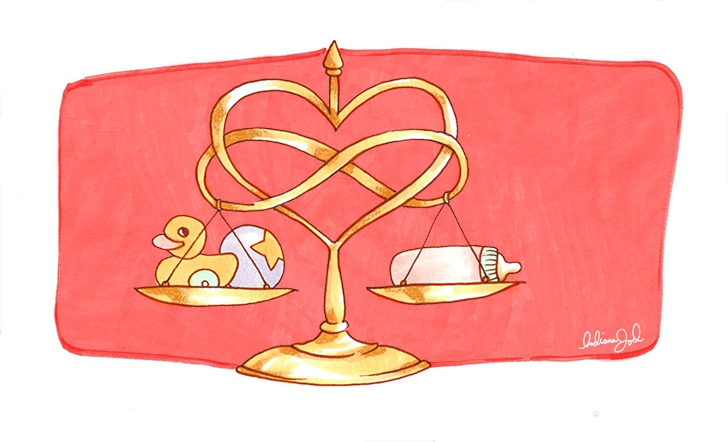
As a BC provincial court case, Paul’s trial has little power to set precedent, says legal scholar John-Paul Boyd, who is also executive director of the Canadian Research Institute for Law and the Family. But that doesn’t make it insignificant, he says.
Judges in future, he says, are still likely to be guided by the example.
“You do have three separate judges who did not reach the conclusion, although they were invited to do so, that there is anything inherently harmful about children living with adults in a polyamorous relationship,” Boyd says.
“Here are these beautiful, beautiful trial decisions where the judges don’t descend into any moral opprobrium. It makes me so proud to be Canadian.”
Kasari Govender, executive director of women’s law organization West Coast LEAF, however, says some parts of the case are still troubling.
She agrees polyamory shouldn’t be a held against a parent, but says she’s glad Saunders’ ruling on violence was shot down. Phrases like “consensual violence,” or the suggestion that violence against a partner was not for “no apparent reason,” she says, have no place in the courtroom.
Govender thinks this case demonstrates that problems in family law are not about polyamory, monogamy, or marriage ceremonies, but rather violence and exploitation. If one man is in a relationship with three women, she says, it’s at least worth considering if exploitation is part of the picture.
“This case is a demonstration of how the law still doesn’t get at exploitation,” she says. “It doesn’t by any means mean that every polyamorous relationship will be exploitative, but it’s important to consider that context.”
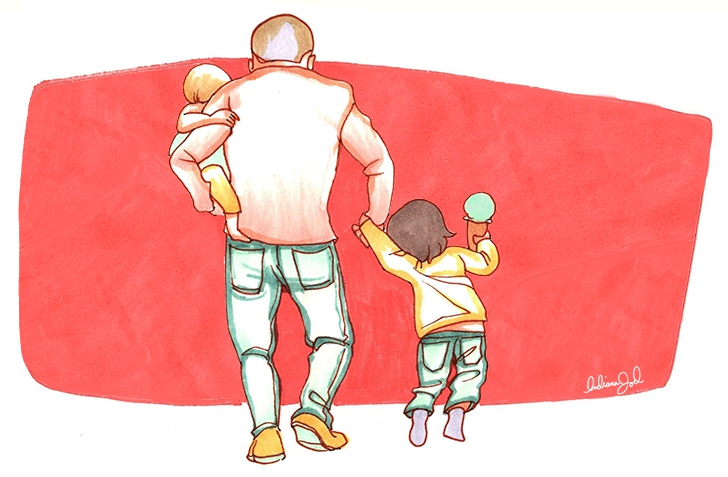
Paul still lives in Nanaimo, where he raises his three boys and one girl with Clara and Theresa.
Since the trial ended, he says, he and Sarah have made some amends, and they focus the best they can on taking care of their children.
Mostly, he’s happy to be done with the oppositional court system.
“The court process is just so hard,” he says. “Some days we’d be in family court on a Monday, which is family day. It was just rapid fire in the morning, going through a million orders. And I’m sitting there, feeling like I’m fighting to be a dad. And meanwhile, you see families there where dad didn’t bother to show up, or didn’t do this or that. They’re trying to force fathers to be fathers. And there I am, begging to be one.”
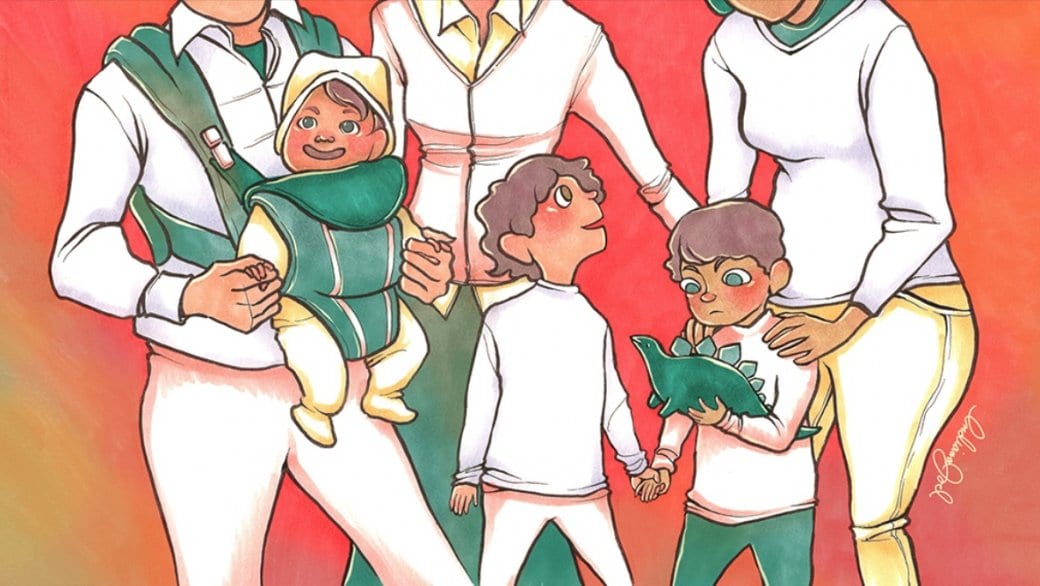

 Why you can trust Xtra
Why you can trust Xtra


